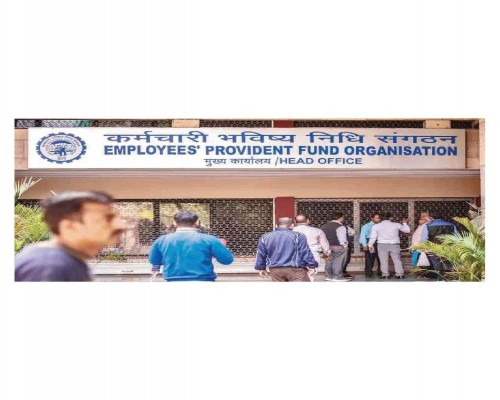CONUNDRUMS AROUND EMPLOYEE NOTICE PERIODS AND THEIR SOLUTIONS

The questions such as whether employees should be allowed to avail leaves during their notice period, whether some punitive action should be taken against them for not serving their notice period, and whether it is proper for employers to go to the extent of not issuing relieving letters to such absconding employees as the proper course of action have ended up creating conundrums even in the minds of experienced HR professionals and executives.
Gaurav Kumar
Advocate Supreme Court of India
Editor : Labour Law Reporter
The notice period, a colloquial manifestation in HR parlance of the period in which the employee has to work with the employer before parting ways, has for - time immemorial - been a subject of great controversy for both the employees and the management. Making the employee serve the contractually specified notice period holds significance for both the employer and the employee - by allowing the former to gain some buffer before the employee leaves the establishment to find the requisite replacement and the latter to look for more opportunities in the much-saturated job market - the modalities around the same often end up leaving both the stakeholders confused and sceptically poised. The questions such as whether employees should be allowed to avail leaves during their notice period, whether some punitive action should be taken against them for not serving their notice period, and whether it is proper for employers to go to the extent of not issuing relieving letters to such absconding employees as the appropriate course of action have ended up creating conundrums even in the minds of experienced HR professionals and executives.
Availing of leaves during the notice period
The question of whether an employee should be allowed to avail leaves during the subsistence of his notice period is essentially a question of fact and primarily depends on the terms and conditions enumerated in his contract of service or the relevant service rules. Reference is made to a judgment of the Delhi High Court in Ghanshyam vs. Delhi Metro Rail Corporation, 2007 LLR 490 (Del. HC) wherein an employee of Delhi Metro Rail Corporation submitted his resignation giving notice for three months as per terms and conditions of his appointment letter. However, he availed leave during the notice period. The employer made demand of short period notice pay on the plea that the employee is not entitled to avail leave during the notice period. The employee challenged the demand of the management before the Court. The Delhi High Court has held that an employee has a right to avail leave and the employer cannot take away such right by declining to grant leave during the notice period, from the employee resigning from the job on the ground that the employee continues to be in service till expiry of notice period and there is no bar as per terms and conditions of his appointment letter upon him from taking leave during currency of notice period if otherwise he has leave to his credit.
Thus, there is no bar on the part of an employee in taking leave(s) during the currency of the notice period and, as such, the employee, unless there is a mandate in the terms and conditions pointing towards the contrary in the contract of employment.
Employee not serving the notice period.
Recently, an interesting case came up before a Civil Court in Ahmedabad, Gujarat in Jensen Kobain Solution Pvt. Ltd. v. Ms. Mariya Kaushik Rajput, Regular Civil Suit No.301/2023 dated 26.09.2024 (Guj. HC) wherein it was the contention of the plaintiff-company that despite being contractually obliged to serve a notice period of 30 days before resigning from her services, the defendant-employee absconded from the same. The Court held that the defendant-employee had breached and violated the terms and conditions of the employment agreement. The plaintiff company was entitled to recover Rs.5,00,000/- from her towards monetary loss and loss of reputation.
It cannot be said that the above case comes across as a novel example, and monetarily and logistically speaking; not many companies would be interested in approaching the courts to institute suits against such absconding employees. This case, regardless, gives us an insight of the importance of notice periods in employment contracts and how they are not to be treated lightly.
The importance of notice periods in private employment contracts was also underscored by the Supreme Court in the judgment of O.P. Bhandari v. Indian Tourism Development Corporation Ltd. and Ors., 1986 (53) FLR 752 (SC), where it affirmed that the condition of serving notice period of even as much as 90 days cannot be held to be wrong or one-sided and that the employer can “cut the dead-wood and can get rid of managerial cadre employee in case he is considered to be wanting in performance or integrity”. Therefore, as per the Supreme Court, notice periods set out in employment terms are mandatory and must be followed.
Not issuing relieving letters to the absconding employees - whether proper?
It has been seen recently that companies are developing a proclivity towards withholding or not issuing relieving letters to employees who either do not serve their notice periods diligently or entirely abscond from their notice periods. A judgment of the Delhi High Court in Vishal Gupta v. L&T Finance Ltd., CS (OS) 2309 of 2008 dated 09.09.2009 (Del. HC) would aid in clarifying this point. The facts of this case were such that the plaintiff-employee resigned from the services of the defendant but was informed by the management that he would be relieved from his services only after he resolved the non-starter cases done for him. Consequently, the plaintiff-employee was not issued the relieving letter by the defendant company, and the employee could not join any other company as he could not produce the relieving letter from the defendant company.
The Court observed that there was no condition in the letter of employment that the plaintiff had first to ensure that the non-starter cases were resolved before his letter of resignation could be accepted. The Court held that if the plaintiff was indeed responsible for the non-starter cases, the defendant company ought to have proceeded to hold an enquiry against the plaintiff while he was still in service, as the plaintiff-employee had made a request to the management for again joining the services of the defendant-company if they were not ready to issue him the relieving letter, which was rejected by the defendant-management as they had lost confidence in him. Also, in this case, the plaintiff-employee had duly made payment for a month’s notice period, which was the condition precedent in the appointment letter for being relieved from service. Thus, there being no terms of service that were required to be fulfilled by the plaintiff-employee, the defendant company could not have refused to issue him the relieving letter.
It becomes apparent from a conspectus of the said decision that the relieving letter of the employee can be withheld/not be issued only if there is an explicit stipulation to this effect in his terms and condition of service and the employee has not fulfilled the same.






















